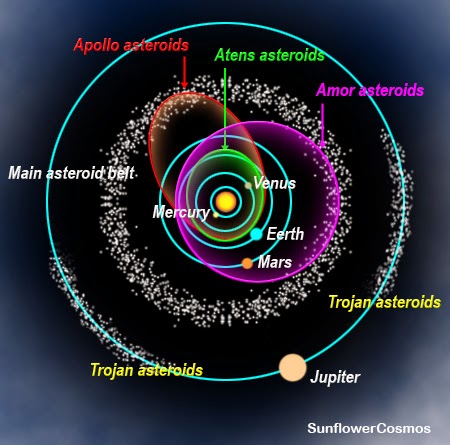THE STAR OF ANTINOUS is well known. And many people are aware that there is also an ANTINOUS ASTEROID ... but few people have heard of the ANTINOUS CRATER.
This crater was named in 1982 after the "OTHER" Antinous — the infamous Antinous of Homer's Odyssey and the Iliad. That is obvious from the association with Penelope. It is highly possible that our God Antinous was in fact named for Homer's Antinous.
For the Ancients, names were not a matter of coincidence. A person's name MEANT something. Nomen est omen — a name is a sign. So why was Antinous given the name of someone who is generally considered to be a scoundrel?
Homer's Antinous was one of the "Suitors of Penelope," the group of moochers who showed up at her doorstep while her husband Odysseus was off fighting the Trojan wars and attempted to woo her and abscond with as much of Odysseus's fortune as they could before he returned — if he EVER returned.
After all, he had been gone for years. Their argument was that he was a "dead beat" spouse and that he had abandoned Penelope and, at any rate, was most probably dead.
Antinous was the craftiest of the suitors and plied Penelope with costly gifts.
Then at last — at long last — Odysseus returned in the disguise of a beggar.
Only his faithful dog recognized him. Penelope did not!
Antinous did not recognize him either and, thinking he was just a homeless street schizo, attacked him with a chair to drive him off.
Later on, during an archery tournament, Odysseus "accidentally" shot Antinous and killed him.
As with much of the Odyssey and the Iliad, it is hard to tell who the "good guys" are and who the "bad guys" are. Homer's Antinous is not exactly a saint, but he in't really guilty of any crime either.
Penelope is the guilty one. As so often in Greek mythology, the women are treacherous and untrustworthy (just think of Pandora). One small detail which you probably did not learn in school was that Penelope had sex with Homer's Antinous and with ALL the other suitors.
FLAMEN ANTINOALIS ANTONIUS SUBIA explains:
"And the resulting child from that pan-sexual tryst was born a little monstar with horns and hooves. He was called Pan because he was the son of Antinous and ALL the suitors. Penelope couldn't look at him, so she abandoned him, and he was taken in by Mercury, who absolutely adored the little monster.
"Ah yes, Penelope gave birth to Pan in Mantinea!"
But that is not all because, in actual fact, Homer's Antinous was associated with magic. He was something of a wizard.
According to legend, Homer's Antinous possessed the fabled Mirror of Vulcan/Hephaestus, which enabled him to peer into the past and the future.
So the name Antinous was always associated with myth and magic, even in ancient times. Hadrian, who was fascinated with all things Greek, would have recognized the association between young Antinous and the ancient Greek myth and magic.
As for the fabled Mirror of Vulcan/Hephaestus — that is the stuff of Antinoian myth and magic for a future blog entry ....


























